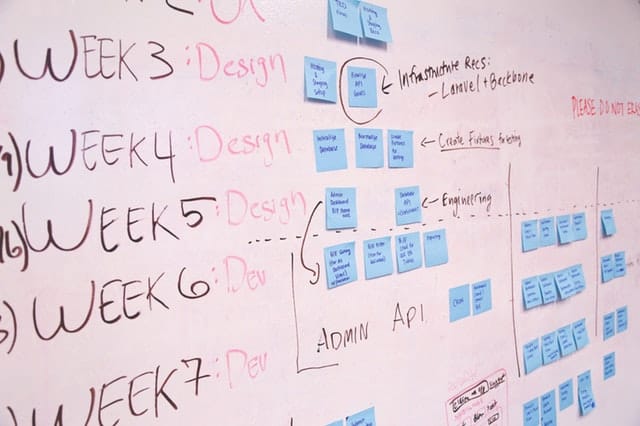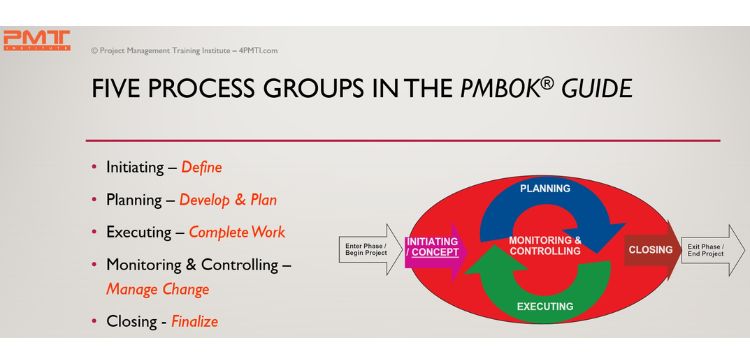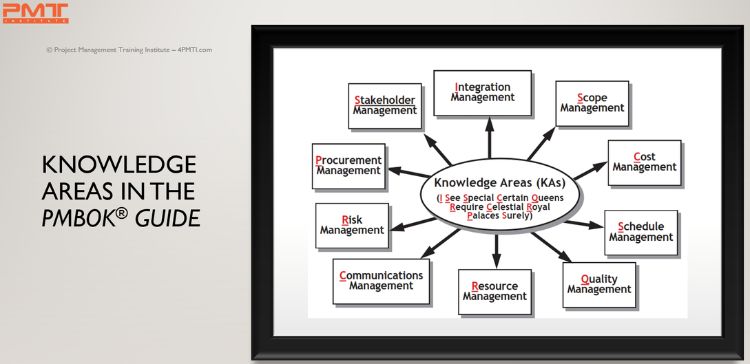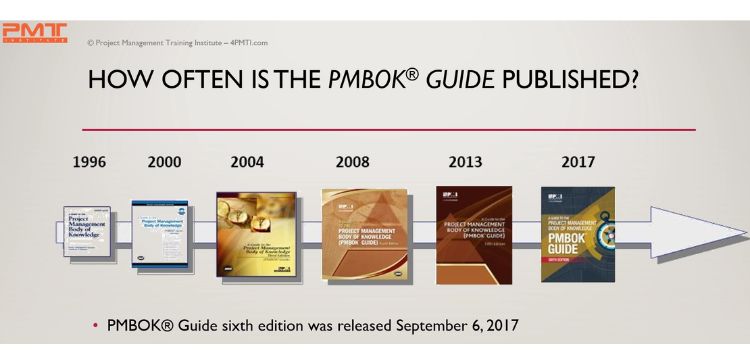PMBOK Guide & PMI Standards: Essential Resources for Project Managers
Published:
Updated:

Table of Contents
Key Takeaways
- PMBOK Guide Overview: The PMBOK® Guide is a comprehensive resource outlining the standards and best practices in project management. It covers project management process groups and knowledge areas essential for PMP certification.
- Knowledge Areas and Process Groups: The guide details 10 key knowledge areas, including scope, time, cost, quality, and risk management, helping project managers effectively plan and execute projects.
- Additional PMI Standards: Besides the PMBOK® Guide, PMI offers other standards and guides to support various aspects of project management, ensuring managers have access to up-to-date and relevant information.
- Resources and FAQs: The guide provides downloadable resources and answers to common questions, making it an indispensable tool for both aspiring and experienced project managers.
What is the PMBOK® Guide?
PMBOK® Guide stands for the Guide to the Project Management Body Of Knowledge is the most well known PMI standard. Most people confuse the PMBOK® Guide to be a book of knowledge. It is a foundational standard for project management developed by the Project Management Institute (PMI).
A foundational standard provides guidelines, rules, and characteristics. The guide specifically addresses the project management field. They are developed and approved under a census-based process. Further, PMI ensures that as the project management profession evolves, so do their standards.
PMI publishes three different types of guides.
- Foundational Standards
- Practice Standards and Framework
- Practice Guides
These are generally recognized standards. They are based on on-going research into practices that have been proven over multiple projects and in multiple industries. They also provide terminology and guidelines.
These are based on up and coming practices that have been recognized in the foundational standards. They tend to be either tools, techniques, or a method. An example is a practice standard for project risk management to address one of the ten knowledge areas.
Practice guides help a management professional apply the standards in foundational or practice standards. An example is the Agile Practice Guide.
The PMBOK® Guide is PMI's fundamental and the world's most popular resource for effective project management practices. The knowledge in the PMBOK® Guide reflects what is actively practiced and historically proven. This guide is consistently updated to reflect the best practices that are evolving within the project management profession. Project managers use PMBOK® Guide for project management industry-consistent lexicon and for adopting time-tested practices.
Max Wideman, PMTI instructor, advisor, and past chairman of the Project Management Institute played a key leadership role in creating the guide.
The PMBOK® Guide is published roughly every four years. The latest one is the PMBOK® Guide 6th edition and was released in September 2017. This eclipsed the PMP certification exam based on the PMBOK® Guide fifth edition on March 26, 2018.
The body of knowledge in PMBOK® Guide latest edition also addresses Agile processes. Additionally, PMI published a separate companion document called the Agile Practice Guide along with the sixth edition.
PMBOK® Guide and Project Management Process Groups
The latest PMBOK® Guide standard is organized into the following major sections:
- The role of the project manager
- Project Management Knowledge Areas, and
- The standard of project management
PMI described the role of the project manager in detail in the 6th edition of the PMBOK® Guide. This included expanding the role into strategy and leadership. It adopts the PMI Talent Triangle as a model for exceptional project management.
The meat of the PMBOK® Guide is in the ten project management knowledge areas and the five basic process groups.
This project life cycle is divided into 5 basic process groups (five phases of project management):
- Initiating
- Planning
- Executing
- Monitoring & Controlling
- Closing
Authorizing a project and identify stakeholders
Develop a comprehensive project management plan to guide execution and control
Get things done by implementing the plan and managing team
Assess, review, and oversee project work while controlling changes
Closeout any financial, legal, or administrative effort

The 10 project management PMP knowledge areas are:
- Scope
- Schedule
- Cost
- Quality
- Communications
- Resources
- Risk
- Procurement
- Stakeholders
- Integration
Ensure all the work and only the work promised gets delivered
Manage the project to completion with the time allocated
Complete the project within budget
Meet the expectations of customers and other stakeholders
Ensure optimal information is distributed
Identify, acquire, and manage optimal physical and team resources
Maximize opportunities and minimize threats
Acquire components or resources from vendors as needed
Engage people interested in the project
Unify all the above for optimal delivery and maximum performance
Project managers have to perform all of the above while holding professional, social, and ethical responsibilities. This involves being fair, respectful, responsible, and honest.
PMBOK® Guide emphasizes that projects impact organizations significantly. Projects are part of programs which in turn are part of portfolios. Portfolios address the strategic goals of the project. Programs and projects carry-out the effort.
PMBOK® Guide also addresses emerging practices. It suggests other practice standards and practice guides for further knowledge.

How to Download the PMBOK® Guide?
The PMBOK® Guide is a copyrighted and proprietary standards document developed by PMI. PMBOK® Guide in pdf format is available as a complimentary download for PMI members. If you are interested in downloading an electronic copy of the PMBOK® Guide 6th edition, follow these steps:
- Head over to https://www.PMI.org.
- Become a member.
- Then, go their menu options on the "PMBOK® Guide and Standards" menu.
- When you download the document, it is secured with a password.
- Enter your membership password.
- Enjoy the unlocked copy that is licensed to you!

"The PMBOK® is not published in a regular basis. The last edition was in 2017. There have been 6 versions since 1996."
Previous PMBOK® Guide versions
The PMBOK® Guide was honored in 1991 as a formal American National Standard by the American National Standards Institute (ANSI). PMI continues to improve and expand the PMBOK® Guide as well as additional standards. The first edition was published in 1996. Subsequently, the most important changes came in the fifth and the sixth editions of the guide.
PMBOK® Guide 5th Ed: After receiving a considerable amount of recommendations, PMI released the 5th edition in 2013. This guide represented PMI's efforts to continually update and upgrade the body of knowledge of the project management profession.
This edition attempted to include advancements within the project management field. This edition added the stakeholder management knowledge area. These recommendations were added to the PMP certification exam. PMBOK® Guide 5th edition pdf is also available as a free download for PMI members.
PMBOK® Guide 6th Ed: The 6th edition is the largest shift in PMI's foundational standards since its first edition. It added Agile processes and changed knowledge area names. The project team is now managed as part of human resource management. PMTI has a detailed description of the PMBOK® Guide 6th edition changes. Please head over to learn more.
Other PMI Standards
PMI developed several other standards that are relevant to project management. Here is a quick summary:
The Standard for Program Management, fourth edition is a definitive guide to promote effective and efficient coordination among related projects. This principle-based guide is a tool for a broad range of organizations, regardless of their project delivery approach.
The Standard for Portfolio Management, fourth edition integrates portfolio performance management, portfolio strategic management, and portfolio communication management. Portfolio managers oversee a variety of projects and programs that are grouped together to meet the strategic needs of a business. Being principle-based, this guide is applicable to a broad range of organizations.
The Practice Standard for Scheduling provides an objective and actionable measurement process for schedule and project models. Schedule management is an essential factor in the success or failure of any project.
Practice Standard for Work Breakdown Structures. Work breakdown structures (WBS) are guides to define work as it directly relates to a specific project's objectives. Project management professionals use WBS to expand on deliverables for a project and establish the structure to manage work to completion.
The Practice Standard for Project Estimating guides a practitioner to achieve a sound estimating discipline for their project. It goes through the stages of the project estimating process, resources, costs, durations and explains the concept of progressive elaboration.
The Practice Standard for Earned Value Management is also known as "management with the lights on". Its primary purpose is to help a project manager get clear and objective visibility into project costs. It ensures work is being accomplished as planned and the costs of remaining work are achievable. This allows a project management professional to see where a project is heading compared to where it's supposed to be.
Final Thoughts of PMBOK Guide & PMI Standards
The PMBOK Guide and PMI Standards are essential tools for project managers, providing a comprehensive framework for effective project management.
Utilizing these resources can improve your project management skills, streamline processes, and improve the outcome of your projects.
Project managers can ensure consistency, efficiency, and success across various projects by adhering to the best practices outlined in the PMBOK Guide and other PMI standards.

